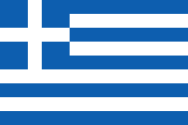 Greece’s radical government has said that future proceeds from privatisations would be diverted to pension funds instead of debt repayment — a move the country’s creditors are likely to oppose.
Greece’s radical government has said that future proceeds from privatisations would be diverted to pension funds instead of debt repayment — a move the country’s creditors are likely to oppose.
“We are creating a new public property agency…. The proceeds will be used to finance social policy and support the social insurance system,” junior finance minister Nadia Valavani told a parliamentary committee late on Monday.
The government has named a tourism real estate developer and former left-wing politician to head the state asset management agency Taiped.
The new chairman, Stergios Pitsiorlas, told the committee that the Greek coastline and beaches “were not for sale” and pledged to revise the long-term lease of Hellinikon airport, the country’s top privatisation deal so far.
Pitsiorlas said the lease was “problematic” and would be “re-examined”.
The previous conservative government had leased the nearly 620-hectare (1,530-acre) site to a consortium comprising Lamda, China’s Fosun Group and Abu-Dhabi property firm Al Maabar for 99 years at a price of 915 million euros ($973 million).
But the hard-left Syriza party had strongly opposed the deal whilst in opposition.
Upon coming to power in January, the government also reversed plans to sell majority stakes in the main ports of Piraeus and Thessaloniki, and privatise the top electricity and petroleum companies.
The move angered China, which already controls two container docks in Piraeus and seeks to further extend its influence in one of the main ports of the Mediterranean as a gateway for Chinese goods into Europe.
Diverting privatisation funds from debt repayment to social programmes is likely to also raise opposition from Greece’s EU-IMF creditors.
In a February deal with its creditors, Athens pledged to refrain from unilateral moves that could impact fiscal targets.
Greece has never been able to meet the targets of its privatisation programme, which was originally conceived in 2010 as part of its first EU-IMF bailout.
The previous government already had to lower the target for privatisation revenues in 2014 from 3.5 billion euros to 1.5 billion euros.
On Friday, the new government said zero revenue had accrued for the first two months of the year, compared to a targeted 152 million euros



